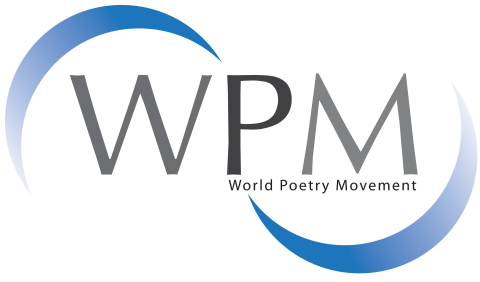Trajectory
Background
“A grain of poetry is enough to inspire a century”.
José Martí
Thanks to the meeting of 37 directors of International Poetry Festivals from four continents, promoted and developed in the context of the 21st International Poetry Festival of Medellin, from 2 to 8 July 2011, the structuring of the World Poetry Movement (WPM) was made possible.
The pioneer of this global movement, the reference point of its origin is the Meeting of Directors of International Poetry Festivals, promoted by the International Poetry Festival of Medellín.
The Berlin International Poetry Festival (convened by Literaturwerkstatt) has regularly brought together directors of international poetry festivals in Europe and of vital poetry projects in Europe, who have made agreements to work collectively for the development of vital projects for the dissemination of poetry, such as Lyrikline (www.lirykline.org), which includes the voices and poems of 703 poets from all over the world.
The International Poetry Festival of Trois Rivieres (Canada) leads an International Federation of Poetry Festivals, which includes the participation of 23 poetry festivals, some of them French-speaking.
Historically, the conditions have been in place, in accordance with the requirements of the world in terms of growth and development, both cultural and spiritual, to contribute to the consolidation of the foundations that firmly support the construction of a new humanism, of a renewed and alert conscience to individual changes projected into the world for social change.
Foundation
“Poetry is a weapon with a future”.
Gabriel Celaya
The directors of the international poetry festivals who attended the founding meeting of WPM are:
Tomás Arias, poet on behalf of Barcelona Poesía (Spain)
Kwame Dawes, poet, and representative of Calabash International Literary Festival
Norma Cárdenas, director of the Encuentro Iberoamericano de Poesía Carlos Pellicer Cámara (Tabasco, Mexico)
José María Memet, poet and director of the Encuentro Internacional de Poetas ChilePoesía
Sixto Cabrera, poet and representative of Encuentro Latinoamericano de Poesía en Veracruz (Mexico)
Lucy Cristina Chau, poet and director of Festival Internacional de Poesía Ars Amandi (Panama)
Fernando Valverde, poet and director of Festival Internacional de Poesía de Granada (Spain)
Rafael del Castillo and Fernando Linero, poets representatives of Festival Internacional de Poesía de Bogotá (Colombia)
Graciela Aráoz, poet and director of Festival Internacional de Poesía de Buenos Aires
Rodolfo Dada, poet in representation of Festival Internacional de Poesía de Costa Rica
Rigoberto Paredes, poet and director of Festival Internacional de Poesía de Honduras
Alex Pausides, poet and director of Festival Internacional de Poesía de La Habana (Cuba)
Giovanni Gómez, poet and director of the Festival Internacional de Poesía Luna de Locos (Pereira, Colombia)
Fernando Rendón, Gabriel Jaime Franco, Jairo Guzmán and Gloria Chvatal, in representation of The Festival Internacional de Poesía de Medellín (Colombia)
Marvin García, poet and director of the Festival Internacional de Poesía de Quetzaltenango (Guatemala)
Gabriel Impaglioni, poet and director of Festival Internacional de Poesía Palabra en el Mundo (Argentina/Italy)
Vilma Reyes and Vicente Rodríguez Nietzche, poets, in representation of the Festival Internacional de Poesía de Puerto Rico
José Mármol, poet and director of the Festival Internacional de Poesía de República Dominicana
Otoniel Guevara, poet and director of the Encuentro Internacional de Poetas El Turno del Ofendido (El Salvador)
Rira Abbasi, director of the International Festival of Peace Poetry (Iran)
Gaston Bellemare, president of the la International Federation of Poetry Festivals and director of the Festival International de la Poèsie de Trois-Rivières (Canada)
Iryna Vikyrchak, poet and executive director of International Poetry Festival Meridian Czernowitz (Ukraine)
Lello Voce, poet, and representative of International Poetry Festival RomaPoesía y de Absolute Poetry (Italy)
Amir Or, poet and director of International Poetry Festival Sha’ar (Israel)
Rati Saxena, poet and director of Krytia International Poetry Festival (India)
Thomas Wohlfahrt, director of Literaturwerkstatt Berlín (Germany)
Endre Ruset, poet and director of Norsk Litteraturfestival (Norway)
Peter Rorvik, director of Poetry Africa (South Africa)
Bas Kwakman, director of Poetry International Rotterdam (The Netherlands)
Regina Dyck, director of Poetry on the Road (Germany)
Céline Hémon, director of International Relations of Les Printemps des Poètes (France)
Jack Hirschmann, poet and director of San Francisco International Poetry Festival (United States)
Zabier Hernández, poet in representation of Recital Internacional de Poesía desde el Sur, Pasto (Colombia)
Ataol Behramoglu, poet and adviser to Smyrna Poetry Festival (Turkey)
Nikola Madzirov, poet and representative of Struga Poetry Evenings (Macedonia)
Ban’ya Natsuishi, poetand director of Tokyo Poetry Festival (Japan)
Ide Hintze, poet and director of the Vienna Poetry School
The meeting discussed the relationship between poetry and peace, the reconstruction of the human spirit, the reconciliation and recovery of nature, the unity and cultural diversity of peoples, material misery and poetic justice, and possible actions to be taken towards the globalisation of poetry.
Actions
“The moment of change is the only poem”.
Adrianne Rich
Since 2011 World Poetry Movement has developed 15 global poetic actions:
In September 2011, in conjunction with 100,00 Poets for Change, 831 poetry readings were held in 101 countries. The appeal stated: “By the nature of poetry, the World Poetry Movement supports and will always support reflections, actions and measures that can contribute to world peace, to the defense of life on earth, to the sustainable development of a new world, to the restoration of beauty, dignity, and truth, in the process of a persistent strengthening of the presence of poetry in contemporary society.
Poetry is knowledge, reflection and enlightenment, liberation, contemplation and action, lightning, creative imagination and fraternity, spiritual unity of individuals and peoples, past, present and future of humanity”.
For 2012, the Movement called on its members to carry out three actions: on February 29, A Step Forward, which counted 207 poetry readings in 42 countries, the invitation read “collectively, to set the whole world on the path towards the democracy we are all dying for and aspire to achieve”. On March 21, a Tribute to Rabindranath Tagore, Aimé Césaire, and Pablo Neruda was held, with 49 readings of poems in 21 countries.
For the month of October, the memory of Pablo Neruda was remembered with 68 readings of poems.
At the beginning of 2013, an action called For Peace in Colombia was called in May, coordinated with Palabra en el Mundo, and 210 activities were held in 120 cities in 63 countries. An excerpt from the declaration said, “The forces of world poetry call for the strengthening of this peace dialogue, for an immediate ceasefire, and for the materialization of agreements that lead to a state of social justice, peace, dignity and reconciliation among Colombians”.
November saw the campaign For the realization of social justice in the world, with 145 actions in 49 countries. An extract from the statement said: “The World Poetry Movement will focus in the month of November on holding poetry readings that expose injustices and hopefully point the way — as only the beacon of poetry can — to a transformative future.
In May 2015, the Days of May action was held in memory of poets Yannis Ritsos, Nazim Hikmet, and Roque Dalton, on this occasion 176 poetry readings were held in 32 countries.
This was followed in July by the action For a planet free of war, which was very well received, with 454 poetry readings in 55 countries. “It is possible to replace this deteriorating (aimless and aimless) human history with higher, more fraternal and just forms of existence, deactivating wars and political conflicts through dialogue and agreements, in order to build a world poetic revolution.
Again on March 21, 2016, the action, A Poem for Refugees, was held in response to the growing wave of migration in the world, and more than 98 poems were read. In October, the action against War and for Peace on Earth was brought forward, and 242 poems were read in 66 countries. And in April 2017, against racism and xenophobia, 160 actions were held in 45 countries.
During the month of August 2018, the Back to the Villages campaign took place, with 240 actions in 59 countries. In its call, the World Poetry Movement said “We know that capitalism is committing suicide through automation and robotization, which is eliminating human labor and the value of money. It is time to end the privatization of property and transform corporations into public institutions that distribute welfare to human beings according to their needs”.
In February 2019, the campaign For a World Without Walls took place, which has been the most participated campaign in the history of the movement, more than 1000 activities were scheduled in 150 countries, responding to the call “we stand for a world free of all discrimination between people, because of their color, their national identity, their social status, their gender or their beliefs”.
At the end of the year, between November and December, the campaign: Poetry is the way to peace, the call said: “We must continue to promote a responsible reflection on the crises in the world today, to converge in actions that materialize the unity of poets and peoples and bring closer the time of a profound spiritual and cultural transformation”.

